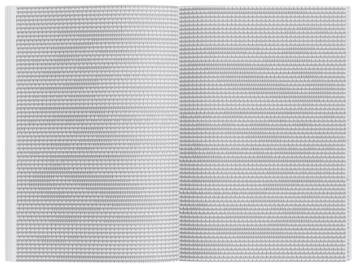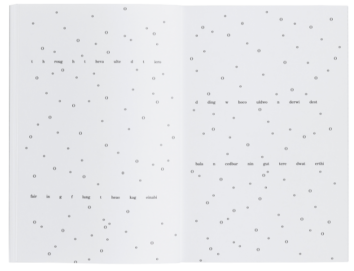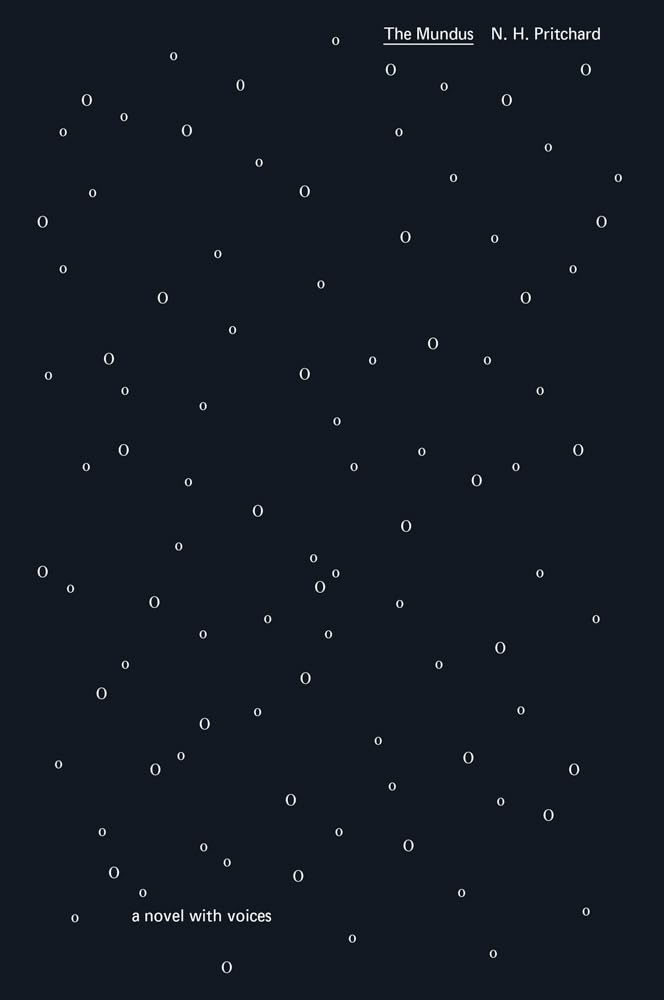N. H. Pritchard
Primary Information ($20)
When I reviewed in these pages the reprinting, fifty years later, of two books of N. H. Pritchard’s highly innovative poetry, I assumed that no more books would appear by this Jamaican American author, who died in 1996. I was wrong. Primary Information, which had previously reissued his 1970 collection The Matrix, has published his manuscript of The Mundus, which I would characterize as the first masterpiece of typographic abstract “graphic” fiction. I emphasize abstract because it differs from Emmett Williams’s Sweethearts (1967), likewise a typographic fiction and likewise a masterpiece (composed only with words made from the seven letters in its title), but explicitly about love. Considering himself to be a spiritual “transreal” artist, Pritchard regarded aesthetic abstraction as superior to, say, representational portrayals of religious themes.
typographic fiction and likewise a masterpiece (composed only with words made from the seven letters in its title), but explicitly about love. Considering himself to be a spiritual “transreal” artist, Pritchard regarded aesthetic abstraction as superior to, say, representational portrayals of religious themes.
While the publisher presents The Mundus as a single continuous text, it may also be read as a sequence of shorter narratives, each with its own typographic signature that changes visually from page to page, thus suggesting narrative, before skipping onto a different typographic signature. If this book is “a novel with voices,” as Pritchard reportedly suggested, then it could be read as monologues by several visually distinct visual “voices,” some of whom speak words and pseudo-words, others just certain letters. For instance, the book opens with over forty pages of the letter O—just the letter O—both upper case and lower case, distributed over the page’s entire field, occasionally with the addition of a few short words. Another voice says “sh” in a single horizonal line without spaces continuously over eighteen pages.

As innovative as Pritchard’s narratives still are, what marks this book as belonging to the 20th century, rather than the 21st, is that all the letters are roughly the same size, because they were produced on a typewriter. Had Pritchard survived into this century, he surely would have exploited the enormous typographic opportunities now offered the visual poet composing on a home computer.
This new edition of Pritchard’s magnum opus includes a short afterword by Paul Stephens, a young but already distinguished scholar of avant-garde literature. And now that The Mundus has (re)appeared, one wonders if other extant Pritchard material—work only published in magazines and anthologies or previously unpublished—might be collected and released. Until then, The Mundus must be seen to be read, let alone believed.
Click below to purchase this book through Bookshop and support your local independent bookstore:
Rain Taxi Online Edition Spring 2025 | © Rain Taxi, Inc. 2025

